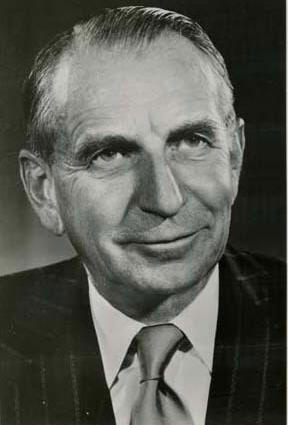

Queer Places:
Cornell University (Ivy League), 410 Thurston Ave, Ithaca, NY 14850
Harvard University (Ivy League), 2 Kirkland St, Cambridge, MA 02138
Preston Pl, Beverly, MA 01915
 Edward Augustus Weeks Jr. (February 19, 1898 – March 11, 1989) was a writer, essayist, and editor of The Atlantic.[1] He died in 1989 at the age of 91.[2]
He was part of the
Literary Ambulance Drivers during WWI.
Edward Augustus Weeks Jr. (February 19, 1898 – March 11, 1989) was a writer, essayist, and editor of The Atlantic.[1] He died in 1989 at the age of 91.[2]
He was part of the
Literary Ambulance Drivers during WWI.
Edward Augustus Weeks Jr. was born in Elizabeth, N.J., on Feb. 19, 1898, and after graduation from high school he attended Cornell University for a year before volunteering as an ambulance driver for the American Field Service in World War I, winning the Croix de Guerre.
He completed his undergraduate work at Harvard College in 1922 and did graduate work at Cambridge University in England before joining The Atlantic Monthly in 1924.
He became assistant editor at the magazine in 1926, spurning an offer to work at a new magazine that Harold Ross was starting called The New Yorker. Two years later, Mr. Weeks became the editor of the Atlantic Monthly Press.
In 1927, Weeks, an assistant editor of The Atlantic Monthly, recommended that the magazine publish Ernest Hemingway's short story ''Fifty Grand,'' which had been rejected by The Saturday Evening Post, Collier's, Scribner's and Cosmopolitan. It was Hemingway's first publication in a national magazine.
Weeks was the editor of the Atlantic Monthly Press from 1928 to 1937 and assumed editorship of its magazine in 1938. During his tenure - the longest of any editor at the publication, which is now called The Atlantic - he nurtured the careers of many young writers who subsequently became famous.
When Weeks succeeded Ellery Sedgwick as editor in chief of The Atlantic Monthly in 1938, he became the magazine's ninth editor in a line stretching back to James Russell Lowell, the monthly's founding editor, in 1857.
Among the best sellers published while Weeks headed the Atlantic Monthly Press were ''Drums Along the Mohawk'' by Walter Edmond, ''Mutiny on the Bounty'' by Charles Bernard Nordhoff and James Norman Hall, and James Hilton's ''Goodbye Mr. Chips.''
The author of more than 10 books, Weeks also supervised the Atlantic Monthly's book reviews for more than three decades, and wrote the magazine's Peripatetic Reviewer column.
Weeks was a vigorous opponent of censorship, and was chairman of the Massachusetts Committee to Reform Book Censorship in the 1920's, the era when the phrase ''banned in Boston'' gained national notoriety.
After his retirement in 1966, Weeks was editor emeritus of the magazine and of the Atlantic Monthly Press until his death.
He died Saturday at his home in Thompson, Conn. He was 91 years old. He was survived by his wife, Phoebe-Lou; a son, Edward F. Weeks of Montgomery, Ala.; a daughter, Sara T. Peabody of Chestnut Hill, Mass.
My published books: